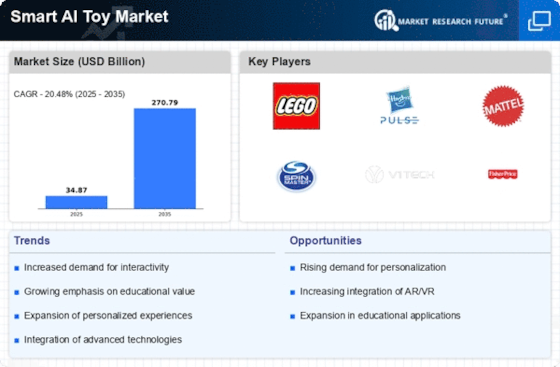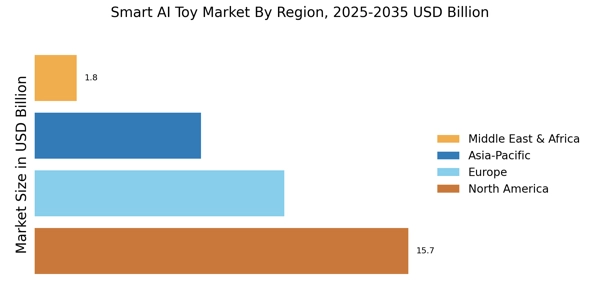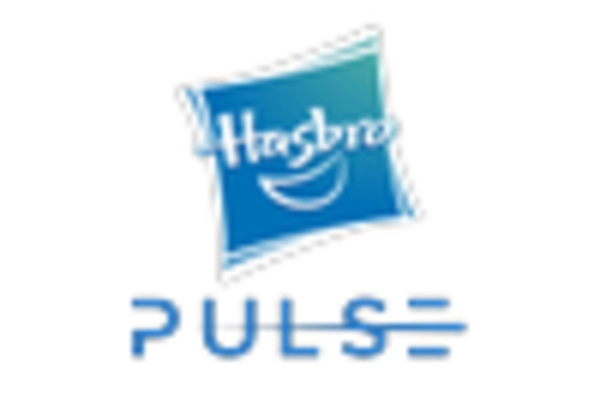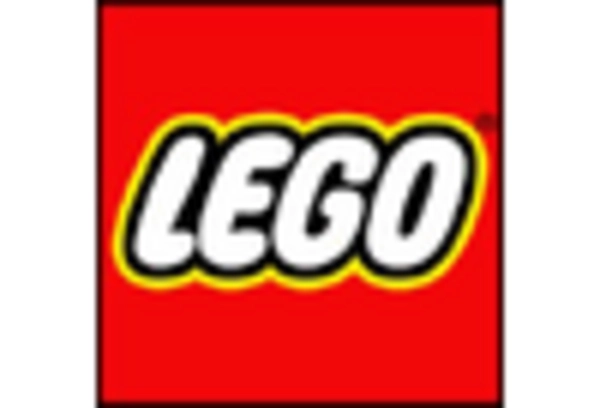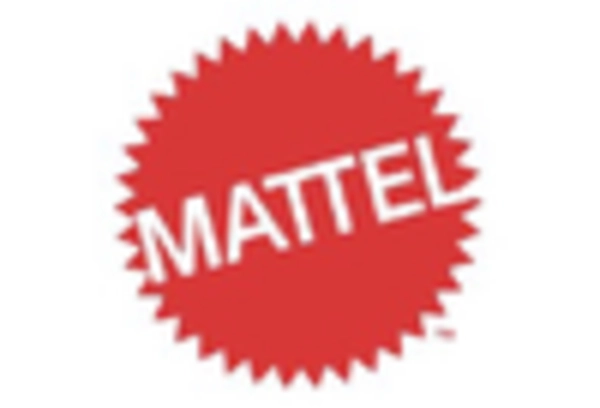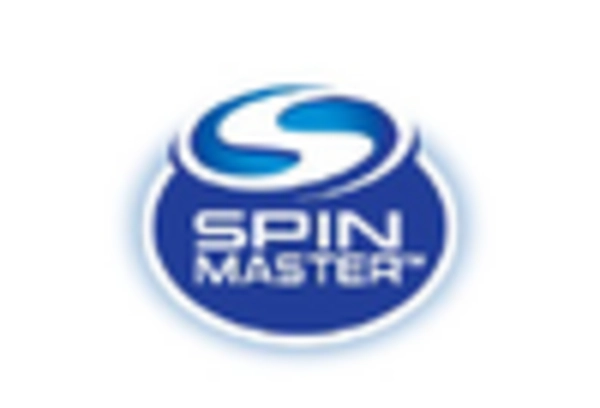Rising Awareness of Child Safety
The Smart AI Toy Market is increasingly influenced by rising awareness of child safety and privacy concerns. Parents are becoming more vigilant about the products they purchase for their children, particularly those that incorporate technology. This heightened awareness has prompted manufacturers to prioritize safety features and data protection in their smart toys. Compliance with safety regulations and the implementation of robust privacy measures are becoming essential for market players. As a result, toys that are designed with safety in mind are likely to gain a competitive edge in the Smart AI Toy Market. This trend suggests that manufacturers who invest in safety and transparency may see increased consumer trust and loyalty.
Technological Advancements in AI
The Smart AI Toy Market is experiencing a surge in technological advancements, particularly in artificial intelligence and machine learning. These innovations enable toys to interact with children in more engaging and personalized ways. For instance, toys equipped with natural language processing can understand and respond to children's speech, fostering a more interactive play experience. The market is projected to grow at a compound annual growth rate of approximately 20% over the next five years, driven by these advancements. As manufacturers continue to integrate sophisticated AI capabilities, the appeal of smart toys increases, attracting both parents and children alike. This trend suggests that the Smart AI Toy Market is not only evolving but also expanding its reach, potentially leading to a broader acceptance of AI technologies in everyday play.
Growing Demand for Interactive Learning
The Smart AI Toy Market is witnessing a growing demand for interactive learning tools that combine play with education. Parents increasingly seek toys that not only entertain but also contribute to their children's cognitive development. Research indicates that educational toys can enhance problem-solving skills and creativity in children. As a result, manufacturers are focusing on creating smart toys that incorporate educational content, such as language learning and STEM concepts. This shift aligns with the broader trend of integrating technology into early childhood education, suggesting that the Smart AI Toy Market is well-positioned to capitalize on this demand. The potential for toys that adapt to a child's learning pace further enhances their appeal, making them a preferred choice for parents.
Increased Investment in Child Development
The Smart AI Toy Market is benefiting from increased investment in child development initiatives. Governments and private organizations are recognizing the importance of early childhood education and the role of play in learning. This recognition has led to funding for programs that promote the use of innovative educational tools, including smart toys. As a result, the market is likely to see a rise in partnerships between toy manufacturers and educational institutions, fostering the development of toys that align with educational standards. This trend indicates a growing acknowledgment of the value of smart toys in supporting child development, which could significantly enhance the Smart AI Toy Market's growth trajectory in the coming years.
Sustainability Trends in Toy Manufacturing
The Smart AI Toy Market is also being shaped by sustainability trends in toy manufacturing. As consumers become more environmentally conscious, there is a growing demand for toys made from eco-friendly materials. Manufacturers are responding by developing smart toys that utilize sustainable resources and production methods. This shift not only appeals to environmentally aware consumers but also aligns with broader corporate social responsibility goals. The integration of sustainability into product design is likely to enhance brand reputation and customer loyalty within the Smart AI Toy Market. As the market evolves, the emphasis on sustainability may become a key differentiator for companies looking to establish themselves in this competitive landscape.
.png)

